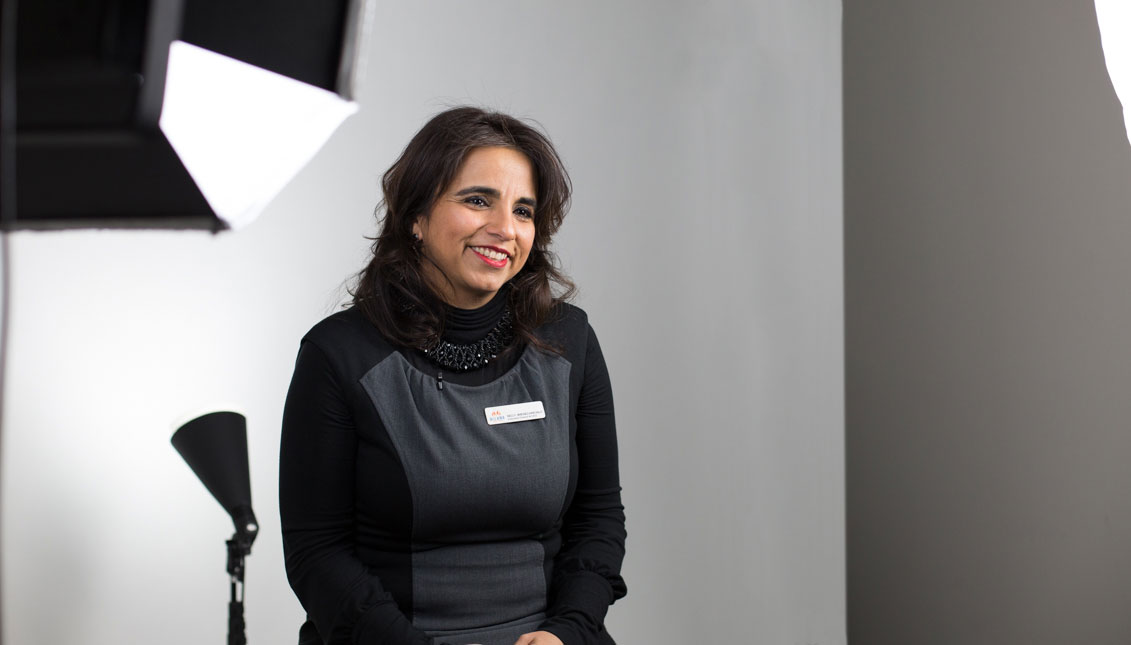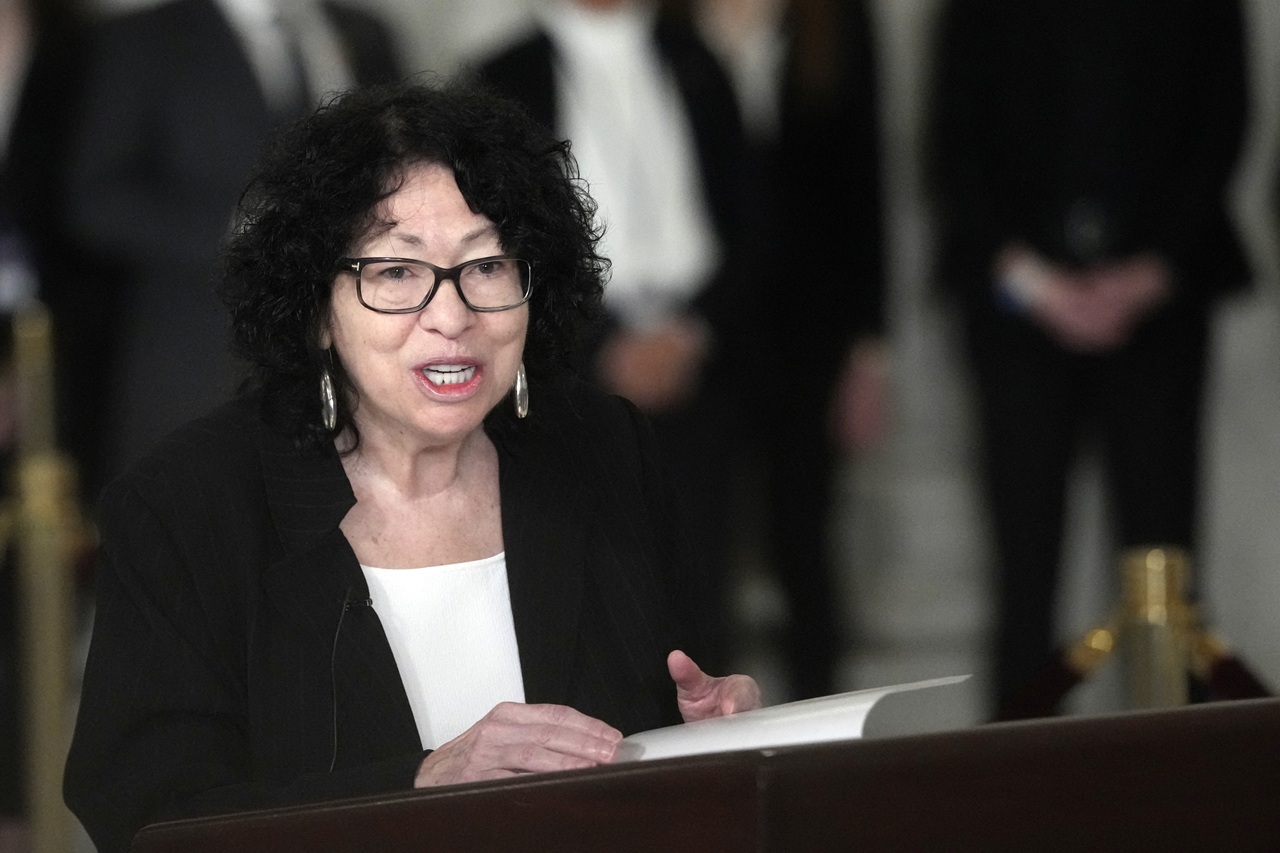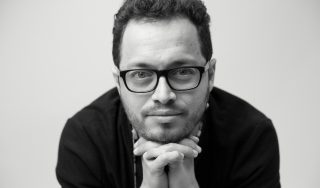
"I am a Venezuelan-American immigrant"
Nelly Jimenez-Arevalo is one of the twelve finalist immigrants in the AL DÍA and Cabrini University campaign “I am an American Immigrant”.
Born in Caracas, Venezuela, Nelly Jimenez Arevalo moved to the United States in 1989, a year in which the Latin American country experienced one of the worst socio-economic crises in its history; only comparable to the one it is currently going through.
It was the year of El Caracazo, when thousands of Venezuelans staged riots in the streets of the capital due to high inflation and corruption, while the government of then President Carlos Andrés Pérez responded with a violent repression that took many lives.
For many analysts, those days of violence were the germ that gave life years later to Chavismo.
For Nelly, it was the moment in which her life took a 180-degree turn.
Although she has been living in the Philadelphia area for almost 30 years, this leader and social worker does not lose her Venezuelan humor. She defines herself as a "Venezuelan-American immigrant" proud of who she is and what she does.
"I always say that I am a combination of what I was in Venezuela and what I learned here. A lot of the good in me is from my parents and how I grew up, plus what I learned from my mentors in the United States," she says.
Nelly is a successful immigrant who doesn’t forget her roots and whose career has always been at the service of the community.
She started as a volunteer at the Congreso de Latinos Unidos, later she worked as manager of the housing and social services program of the same organization. Then she was director of community relations at the Maternal and Child Health Consortium, where she became the director of the Kennett Square Family Center. From there she grew to her current position: executive director of ACLAMO Family Centers, from where she provides services to the Latino community of the Montgomery County.
Nelly spoke with AL DÍA about what it is like to be an American immigrant:
Immigrant are fighters. We are inspirational. We are hard workers and I think we don’t have one way to go, we see the broader picture, and I think that is a skill that many people don’t necessarily have.
I think immigrants, since they have to go through a lot to be able to be who they are, I think sometimes immigrants are seen in a negative way. And it’s hard to know how people see or perceived you.
When we talk about immigrants, we always think about foreigners, but we don’t think that immigrants are a base of our communities and what they bring as a productive people in our community.
When I think about immigrants I always think about hard workers, culture, the language, being able to work with others of different backgrounds, ethnicity.
I think in diversity because you cannot put every immigrant in one pot, you need to understand that when you talk about immigrants there are immigrants that are going to cultivate the soil, but also there are a lot of professionals that are doing their part of their work.
Many of the contributions are monetary, and people don’t pay attention to that because a lot of people hear from negative sources about immigrants draining the system and I am like “Hello! I work with the community, I know that they cannot apply for a lot of the things.”
A lot of immigrants have opened businesses, have hired people that are maybe Latinos but non-latinos too.
RELATED CONTENT
Our children are a gift to our society, to our community. Our children are gonna be the next generation and many of them are learning the language, the culture, they are open-minded to many other options.
So I’d say money, our children, the cultural piece and language are what we bring to our community.
I love that question. The first time that I felt that I was home here -I think for immigrants like me is very hard because, you come here and then I think the first time that you know that you are an immigrant is when you go back and then you’re not from there or from here, so you are in this limbo, and they called you “you are a gringa” because now you are all American and then I am like “no, I am Venezuelan and I am American”.
So we have to balance that, and sometimes it’s hard because, the people from here are gonna see you as an immigrant, and the people from there are gonna tell you “you’re not a Venezuelan anymore.” I think that is a little bit challenging.
I think the first time that I really knew that this was my home was when my parents came to visit me from Venezuela and I had already developed relationships with a lot of people. I remember this member of the Rotary Club and he is a dentist. And my father had an emergency and because he was visiting he didn’t have insurance.
I was able to get on the phone and call him directly and say “doctor, I need help with my dad. And he’s like: “of course Nelly, bring him to my place.
And I was like “Oh my god, I feel like home.” It was the first time that I felt I knew someone in the medical profession, someone who was my friend…
For me it was like home, people recognizing me as their peer, their partners. That was one of the moments that I felt like home.
I would have a frank conversation with him. I would say “you can say you are supporting our dreamers but you really don’t because your actions are showing that you don’t wanna do this because you have made other decisions about other issues that are important to you and your base, and you have made them happen, and you still are not making the decisions to help our dreamers to get them to where they need to be.”
I would make sure that he understands... that he gets to know me as a person, that I am not an exception. I don’t want people to think of me as an exception, I am an immigrant like anybody else. It is just that my contributions look different than the contributions of the people I serve in ACLAMO.










LEAVE A COMMENT: